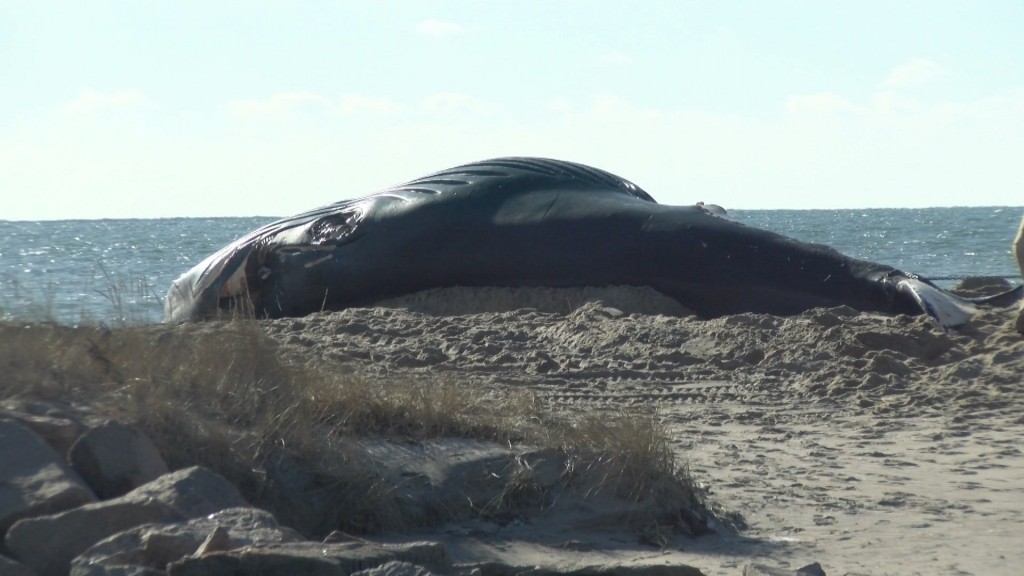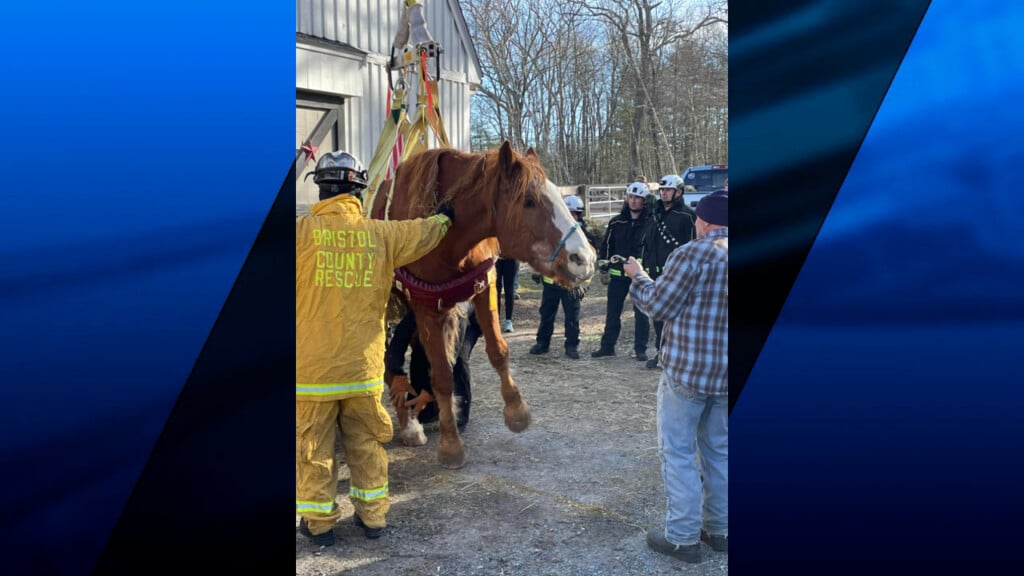Necropsy performed on humpback whale washed ashore in Charlestown

CHARLESTOWN, R.I. (WLNE) – Experts from Mystic Aquarium conducted a necropsy Wednesday on the humpback whale that washed ashore in Charlestown over the weekend.
The whale, a juvenile male, was first spotted on Friday floating in the water and was later found washed up on East Beach on Sunday. Due to winter weather, it took Mystic Aquarium’s animal rescue team three days to get to it.
“Waiting on the weather has slowed the process considerably for us,” said Dale Wolbrink, spokesperson for the aquarium.
Rhode Island’s Department of Environmental Management used heavy-duty equipment to move the whale away from the shoreline as the rising tide impacted the marine biologists’ efforts to conduct the necropsy.
“They will get some tissue samples from all of the organs, from the blubber and from the skin. They will open it up and take a look at the intestines and the internal organs as well. They’ll take samples that will then get sent off to a pathologist for evaluation,” said Wolbrink.
Wolbrink said deaths of humpback whales have been rising since 2016, and the results they collected will be used to find out why.
“In that time period we’ve seen 110 dead, stranded humpback whales, and that’s why this is so important for us to get this data so that we can analyze the tissues and the organs to see if there is something that’s going on for the species as a whole.”
The whale drew a large crowd across the water on the Charlestown Breachway, with people braving the cold to catch a glimpse of the necropsy.
“I heard on the news that there was a beached whale and I wanted to take a look and see what was going on,” said Clyde Belgrave of South Kingstown, a pathologist himself. “I have done autopsies on humans so I’m hoping to see some of the internal organs, see how similar they are to ours.”
Others were there to be one of the first to find out the cause of death.
“I’m hoping that this was natural causes and not something that was caused by man,” said Patricia Berdnick of Charlestown.
But Wolbrink said often times they are unable to find out a cause of death, but results could take anywhere from weeks to months.
She hopes an event like this will serve as a teaching moment.
“This is a learning opportunity for children and families to see that there are consequences to our actions, and even though we don’t know what happened to this animal, having it be here on our beaches, it makes that connection to people and the need we have to protect the environment and the animals that live in it.”
The DEM will bury the whale on the beach once the biologists have collected all of their samples.
“Marine mammals are often indicative of what’s going on in the environment. So all of that information is really important as we not only try to save animals and save species, but also the work that we can do to help protect our environment,” said Wolbrink.
© WLNE-TV 2019



